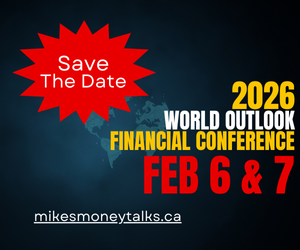Featured Article
Are you an “investor” or a “speculator?”
In today’s market the majority of investors are simply chasing performance. However, why would you NOT expect this to be the case when financial advisers, the mainstream media, and WallStreet continually press the idea that investors “must beat” some random benchmark index from one year to the next.
But, is this “speculation” or “investing?”
Think about it this way.
If you were playing a hand of poker, and were dealt a “pair of deuces,” would you push all your chips to the center of the table?
Of course, not.
The reason is you intuitively understand the other factors “at play.” Even a cursory understanding of the game of poker suggests other players at the table are probably holding better hands which will lead to a rapid reduction of your wealth.
Investing, ultimately, is about managing the risks which will substantially reduce your ability to “stay in the game long enough” to “win.”
Robert Hagstrom, CFA penned a piece discussing the differences between investing and speculation:
“Philip Carret, who wrote The Art of Speculation (1930), believed “motive” was the test for determining the difference between investment and speculation. Carret connected the investor to the economics of the business and the speculator to price. ‘Speculation,’ wrote Carret, ‘may be defined as the purchase or sale of securities or commodities in expectation of profiting by fluctuations in their prices.’”
Chasing markets is the purest form of speculation. It is simply a bet on prices going higher rather than determining if the price being paid for those assets are selling at a discount to fair value….CLICK for complete article

Josef Schachter may be shocked when he learns what Michael has arranged with his team. Our MoneyTalks audience can get two months of The Schachter Energy Report’s Black Gold Service for ONLY $27! This is a service that regularly costs $799 a year. You can’t not try it out at this price. In addition to the two months of reports, updates, buy & sell alerts – you also get the full archive of Black Gold content, including their Webinars, the most recent from November 14th discussing key information about the upcoming bull market.
Don’t miss out on this ridiculously good deal. CLICK HERE to order and for more information.

Have you ever considered investing in alternative investments such as real estate, private lending or commodities? Watch this video from Andrew Ruhland at Integrated Wealth Management to see what he recommends.

Update: After sparking much apocalyptic speculation following the previously reported WSJ article according to which Bridgewater has a $1.5 billion short position on the S&P which implies a sharp market drop before March 2020, the fund’s founder, Co-Chairman and Co-CIO has come out refuting the WSJ article.
In a LinkedIn post published shortly before noon, Dalio published a brief LinkedIn comment in which he claims that the WSJ article’s conclusion that Bridgewater is betting on a market drop is “wrong”, and wants to “make clear that we don’t have any such net bet that the stock market will fall.” He then pulls a page out of every Wall Street prop desk, and certainly that of the JPMorgan whale, in which he says that “we don’t have any such net bet that the stock market will fall. We explained to Juliet Chung, the author of the article, that to convey us having a bearish view of the stock market would be misleading, but it was done anyway.”
What Dalio is in effect saying is that the short position is merely a hedge to its existing portfolio, which of course, is the same “explanation” that Wall Street prop desks used over and over for the past few years when they were banned from taking pure directional trades, and as a result, were forced to justify any positions as “hedges” to other positions, with the London Whale’s IG9 fiasco coming to mind most notably…CLICK for complete article

In recent testimony to Congress’s Joint Economic Committee, Jerome Powell stated:
“The debt is growing faster than the economy — that’s unsustainable. It’s not the Fed’s job to say how the government should cut the deficit, but we need to get the economy to grow faster than the debt. Otherwise, future generations will be paying more of their taxes to cover the government’s debt costs than for other things like health care, etc.
I think the new normal now is low interest rates, low inflation and probably lower growth. Even with the lower interest on its debt, the government still needs to reduce its budget deficit.”
Interestingly, these were not the first time we heard these words. In 2012, then-Fed Chair Ben Bernanke told Congress:
“Rising federal budget deficits are posing a significant threat to the U.S. economy and are likely to cause a crisis if not brought under control. Having a large and increasing level of government debt relative to national income runs the risk of serious economic consequences. Over the longer term, the current trajectory of federal debt threatens to crowd out private capital formation and thus reduce productivity growth.”
Looking back now, it was clear that Bernanke was correct. Over the last 30-years, the rising level of Federal Debt relative to National Income has retarded Productivity in the U.S. CLICK for complete article












